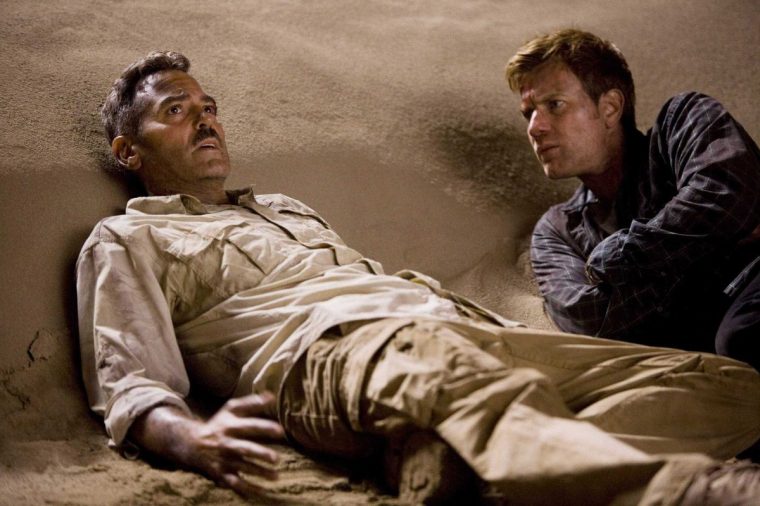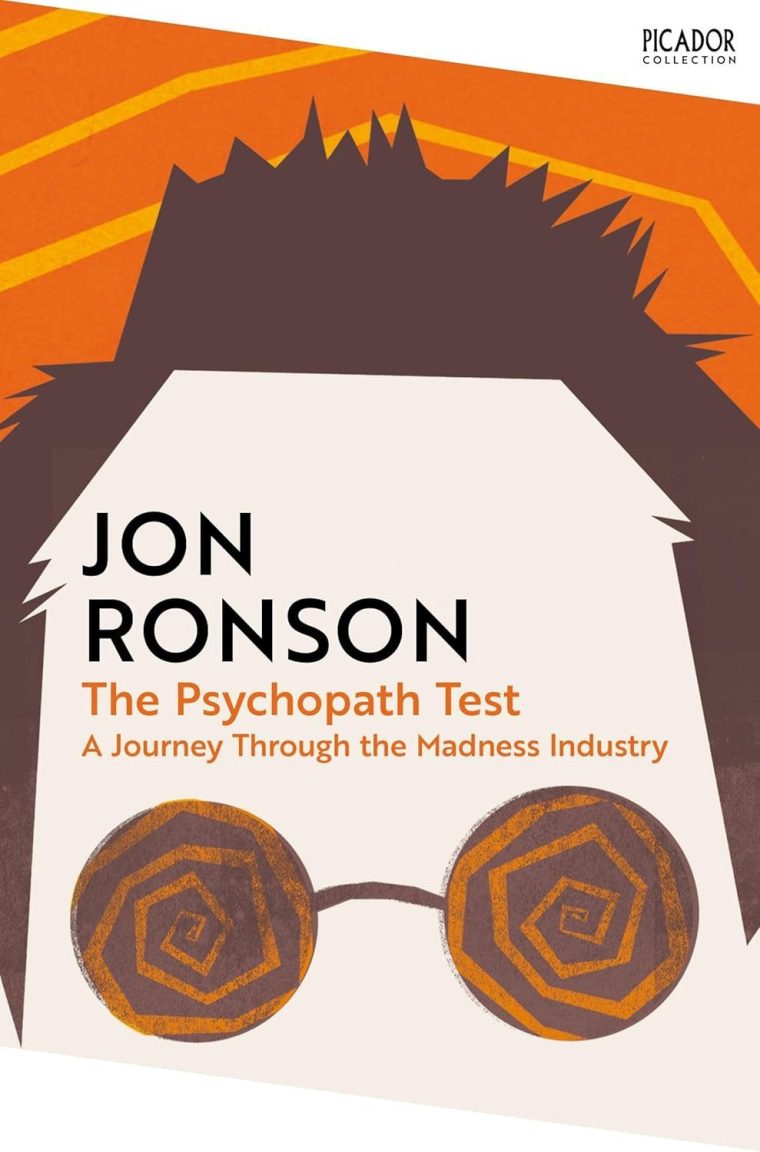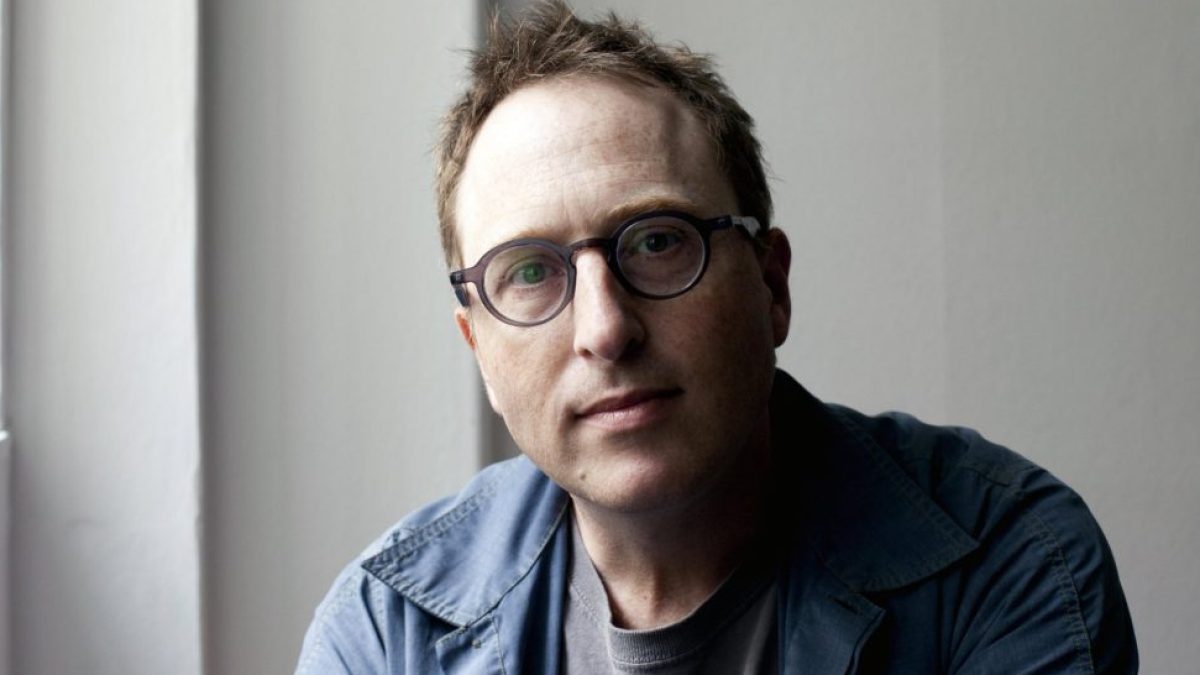When strangers ask Jon Ronson what he does for a living he says he’s a non-fiction writer. But if they press him for details, it gets tricky. “Then I get flustered,” he admits. “I say, ‘Psychology, funny stories, crazy adventures…’”
That’s one way of putting it. From his first book, Them, 25 years ago to his BBC podcast Things Fell Apart, Ronson has specialised in people who go to extremes: conspiracy theorists, culture warriors, psychopaths, the radicalised and the disgraced. If superstar journalist Michael Lewis (The Big Short) is famous for profiling mavericks whose ideas change the world, then perhaps Ronson is the Michael Lewis of people losing their minds.
He laughs uproariously at this description, as he laughs at many things. With his Harry Potter glasses and tufty hair, Ronson’s exuberance completes the impression of a hand-drawn cartoon. You can see why people feel comfortable opening up to him. In the US, where he has lived since 2012 and presented several episodes of NPR’s long-running show This American Life, this genial, quizzical 58-year-old Welshman must seem disarmingly exotic.
Ronson is speaking from his tiny apartment in New York’s Greenwich Village. (He and his wife Elaine also have a former llama farm upstate, across the street from Alec Baldwin. “Every time you see a viral video of Alec Baldwin being abused by a member of the public, it’s right outside my window.”) He’s just returned from a reporting trip to Tennessee, in the heart of Trump country, which was more pleasant than you might imagine. Ronson likes to like, and to be liked, regardless of political differences.
“I always try to meet people on a human level and often it takes you to a more interesting place,” he says. “It’s not even tactical. It’s just the way that I am. I very much believe in people being a complicated mix of positive and negative characteristics.”
Ronson is a master of listening to people’s stories and crafting them into addictive narratives, full of strange connections and unintended consequences, which end up somewhere unexpected. For example, a typical episode of Things Fell Apart, which tells unexpected stories from the culture wars, arrives at the killing of George Floyd via a serial killer in 1980s Miami. In his 2011 bestseller The Psychopath Test, Ronson embraced the practice of diagnosing people with psychopathic tendencies only to unravel it and turn the lens on himself. “I got too drunk on my psychopath-spotting skills,” he says. “It turns you a little bit psychopathic yourself.”
 George Clooney and Ewan McGregor starred in the 2009 film adaptation of ‘The Men Who Stare at Goats’ (Photo: Laura Macgruder/Westgate Film Services)
George Clooney and Ewan McGregor starred in the 2009 film adaptation of ‘The Men Who Stare at Goats’ (Photo: Laura Macgruder/Westgate Film Services)
Fourteen years later, he’s back on the road with Psychopath Night, a live show that explores the psychopathic mind with the aid of wild stories from two mystery guests. He likes reviving it every few years to explore how our attitudes have changed.
“There’s so much greater awareness of mental health conditions,” he says. “But there’s also been a whole destigmatisation of psychopathy lately. You’ve got psychopath TikTok influencers who give lifestyle advice on how to manipulate people.” He boggles. “It feels like certain items on the psychopath checklist are being widely encouraged in our society. People are much happier to lie than they used to be. Of course, people are interested in Trump and what his potential disorder is.”
If The Psychopath Test was Ronson’s big hit, and 2004’s The Men Who Stare at Goats (about psychics in the US Army) was the one that became a George Clooney movie, then 2015’s So You’ve Been Publicly Shamed was his greatest contribution to the public discourse. Ten years on, the career-ruining scandals in the book seem rather old-fashioned, but at the time the phenomenon of Twitter mobs felt new and challenging. To his dismay, conservatives greeted his compassionate study of the victims of public shaming (some innocent, others more deserving) as a broadside against left-wing “cancel culture” and invited him onto their podcasts. He politely declined.
“I pissed off a lot of people who were saying nice things about the book because I thought they were saying them from a right-wing ideological perspective,” he says. “And at the same time the book was being attacked by people on the left. I could totally see in that moment why people would move to the right: when the left rejects, the right wait there with open arms.”
Perhaps inevitably, Ronson soon experienced his own Twitter-mobbing after he tweeted sympathy for Rachel Dolezal, a white American woman who had claimed for years to be black. It was the scandal du jour. “My point was we’re constantly making troubled people our playthings,” he says. “I wish I hadn’t done that, even though I don’t think I was wrong. All hell broke loose. For about a month I’d wake up at three in the morning, go on Twitter, and there would be 900 notifications.” He sighs. “I went out for dinner with my wife and son and I said, ‘They’re like the Khmer Rouge!’ And Elaine said, patiently, ‘They’re not like the Khmer Rouge.’”
The incident was a rare blip in a glittering career: books, podcasts, documentaries, screenplays. It’s what he dreamed of growing up in Cardiff, the son of a warehouse manager and a social worker. He briefly played keyboards for the comedian Frank Sidebottom (fictionalised in his 2014 movie Frank) but his real passion was storytelling. He synthesised influences such as singer-songwriter Randy Newman, novelist Kurt Vonnegut and documentarian Nick Broomfield into a distinctive voice: sincere yet playful, ironic yet humane. “Doing something ridiculous in a very serious world,” he says.
Ronson made his name with a weekly column of peculiar adventures in Time Out. He had no back-up plan. “I was really ambitious. I couldn’t imagine what I would do if I didn’t have this career in non-fiction. All of my self-esteem and happiness is based around telling stories well. It feels like my reason for being.”
He was therefore acutely sensitive to obstacles. “I was very aware of gatekeepers not being into me. For everyone who was supporting me there was someone who thought I was an idiot and shouldn’t be at the The Guardian or the BBC.” He still looks hurt. “So it never felt like an easy ride. I felt like I was constantly having to convince people to give me a chance, with this weird voice that I have and this lower-middle-class Welsh awkwardness.”
They’re friends now but for a while in the 1990s, Ronson’s arch-rival was Louis Theroux, who covered similar terrain but was slicker, posher and more telegenic. “The Nirvana to my Pixies,” Ronson jokes. “That was weirdly wounding. I thought, ‘Shit, is he better than me?’” What changed? “Them was a success so I thought, ‘OK, well that’s fine now. I can write books and Louis can make documentaries. I no longer feel like I’m in competition with him.’”
Ronson has almost finished his first book in a decade. He doesn’t yet know what to call it or how to describe it but he will reveal that it includes a chapter on people who self-radicalise online and sacrifice their careers and relationships to the obsessive pursuit of a political crusade. He’s lost two old friends that way and wants to understand how it happened. “The way it’s consumed them is horrendous,” he says. “I do think I might have come up with a new way of looking at that. Is it a choice to become another person or can people just not help it?
As he explores in the second season of Things Fell Apart, many such cases date back to the cataclysmic rupture of the 2020 lockdown. “I think lockdown cut a lot of people adrift in the world,” he says. “They thought, ‘We’re on our own here.’ People were spending more and more time online and getting paranoid and isolated. I think it’s had a seismic effect on us that hasn’t been properly acknowledged. Society wants to forget but maybe the residue remains.”
Has he ever fallen down the rabbit hole himself?
“It’s easy to slide in. When I did The Men Who Stare at Goats, a remote viewer told me that London Zoo was going to be hit by a dirty bomb. She felt the elephants screaming in agony. I was back in London a week later and looked over at London Zoo and thought, ‘Oh, you poor civilians, you don’t know what I know.’ And then I realised that it can’t be true because the elephants had all been moved to Whipsnade.” He laughs. “But I did for a moment believe I had special knowledge.”
Many of Ronson’s stories have an online dimension. He’s like a detective who keeps arriving at crime scenes to find social media’s fingerprints everywhere. In the new book, though, he’s made an effort to move offline, encouraged by his filmmaker friend Adam Curtis. “The last time we had dinner he said, ‘Stop telling stories about the internet!’ I suppose the question is: did social media turn us this way or were we this way anyway?”
Last night, he says, he was listening to Reza Aslan’s Jesus biography Zealot. “Just as I was drifting off to sleep, he was talking about how the Romans came into Jerusalem and murdered everyone,” he says cheerfully. “And I thought, ‘Well, maybe things have always been bad. It’s not just social media!’”

Jon Ronson’s ‘Psychopath Night 2025’ tours from 1 to 23 November. The show is inspired by his book ‘The Psychopath Test’, published by Picador
